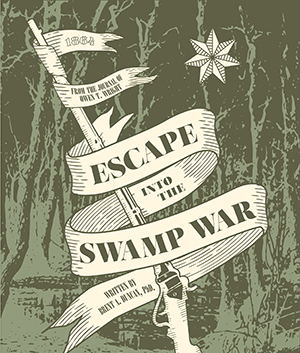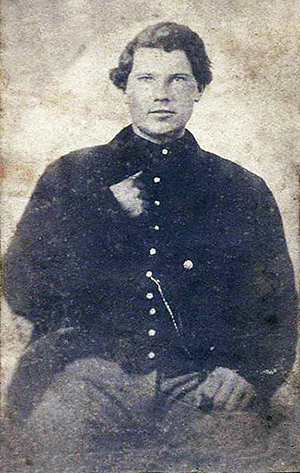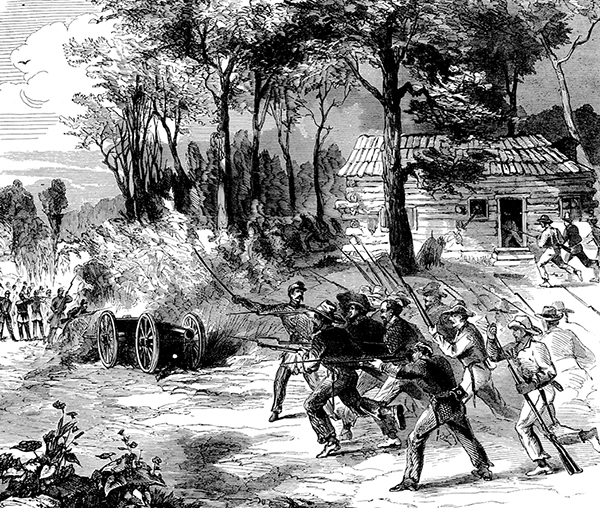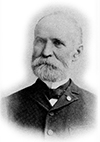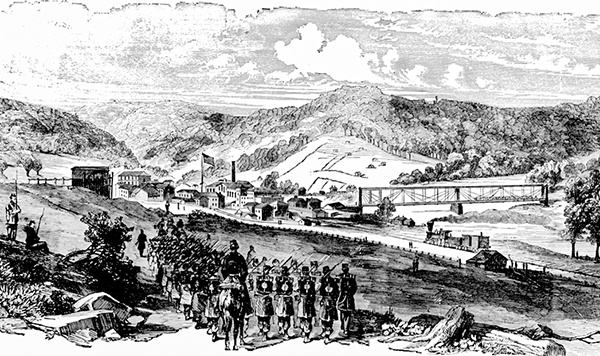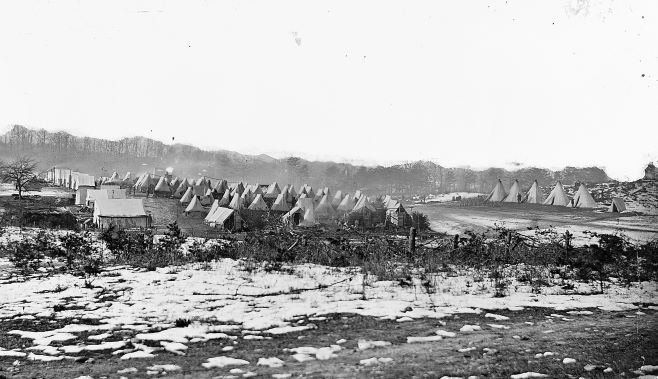In the National Tribune, Owen corrects General Grant's recollections about the Cross Roads at the Battle of Wilderness. Owen writes about his promotion to sergeant, his capture, and taunting his rebel captors. He summarizes his time at Andersonville and Florence prisons, his escape through the swamps, recapture, rescue by Sherman's Bummers, and his return to a new unit at Appomatox--seven days after the end of the war. This part of Owen's Civil War Memorandum was printed in the National Tribune on 25 February 1897 and is featured in John Michael Priest's book, Victory without Triumph, The Wilderness.
LIKED GEN. GRANT'S STORY.
“One Who Was There” Tells How he Was Taken in by the Jonnies.

Editor National Tribune: I read with thrilling interest Gen. Grant’s article upon the Battle of Wilderness. I had been in all the fights in which the 14th Ind. had been engaged, and I must confess that I went into that fight with feelings of superstitious awe. I had, though always at the front, never got my clothing cut, and, like the old railway man, thought my turn would come some time.
The 14th Ind. got to the intersection of the Brock and Orange Plank road near sundown with the 4th and 8th Ohio and 7th W. VA. We threw our knapsacks as we ran into line, the 14th right at the cross-roads.
Grant and Hancock were sitting on their horses directly in the cross-roads, as though there was nothing particular the matter. There were no troops in front of them; the line had just been broken. If the smoke had not been so dense they would undoubtedly have been slain, for a number of my company and a few of other companies were sounded getting those two pieces of artillery back.

The Acting Orderly-Sergeant of our company, George Faucett, was mortally wounded just to the right of this artillery. I took his place next morning, and where history states that “Hancock drove Hill’s Corps for a mile” I was captured, near little field fringed with pines where the enemy had a masked battery. So, my fears were turned into gladness.
As I passed this masked battery, some of the rebs were standing up on top of the guns, looking over the little pines toward the front. I hallood and asked, “Which is the direct route to Richmond, boys?” They laughed and pointed toward the rear.
That ended my fighting. I went to Andersonville and Florence, escaped into the swamps, twice left for dead with typhoid-pneumonia, picked up by Sherman’s Bummers, sent from Goldsboro to Newbern, thence to Fort Monroe. City Point, arriving at my regiment (20th Ind.) then at Appomattox, seven days after the surrender of Lee.

They had promoted Sergeants to Lieutenants and Captains, but, thanks to the Lord I was still Serg’t Ragamuff. I had to be transferred to a strange company where there was a vacancy.
I like the spirit in which Gen. Grant writes, but he must see that we are acquainted with the “Cross-roads,” as we call it in the West. On the morning of the 6th, to the left of the Plank road, we passed over where his troops fought, and we can give evidence to the tremendous struggle the evening of the 5th in that weired (sic) thicket and tangled railroad. The leaves were covered with white splinters and bespattered with blood. It makes me shudder yet to think of it.
There was tremendous musketry off to our left until some time after dark, when it ceased as suddenly as if every man on each side was slain. Both sides set up the most tremendous yelling and cheering of defiance we ever heard. Grant and Lee were both correct when, on the evening of the 6th of May, they sent dispatches to their respective Governments—“We have repulsed every charge of the enemy.”
When our lines, in advancing through the tangled brush, would become disorganized, and we met a solid line-of-battle, would have to give way; then the rebel lines, in advancing would become disorganized, meet a solid line-of-battle, and give way; and thus it was for two days—repulsing every charge of the enemy.
—OWEN T. WRIGHT, Sergeant, Cos D and A, 14th and 20th Ind. Fort Dodge, Kan.
Owen's story was featured in
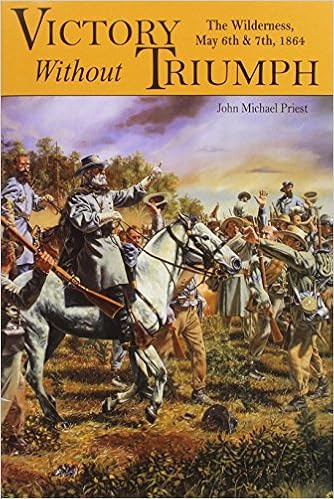
Owen's article was also reprinted in the following newspapers:
- The National tribune. [volume] (Washington, D.C.), 25 Feb. 1897. Chronicling America: Historic American Newspapers. Lib. of Congress. <https://chroniclingamerica.loc.gov/lccn/sn82016187/1897-02-25/ed-1/seq-3/>
- The Globe-Republican. (Dodge City, Kan.), 12 Aug. 1897. Chronicling America: Historic American Newspapers. Lib. of Congress. <https://chroniclingamerica.loc.gov/lccn/sn84029853/1897-08-12/ed-1/seq-1/>
- The Bottineau Courant. (Bottineau, Bottineau County, N.D.), 01 May 1897. Chronicling America: Historic American Newspapers. Lib. of Congress. <https://chroniclingamerica.loc.gov/lccn/sn88076086/1897-05-01/ed-1/seq-6/>


